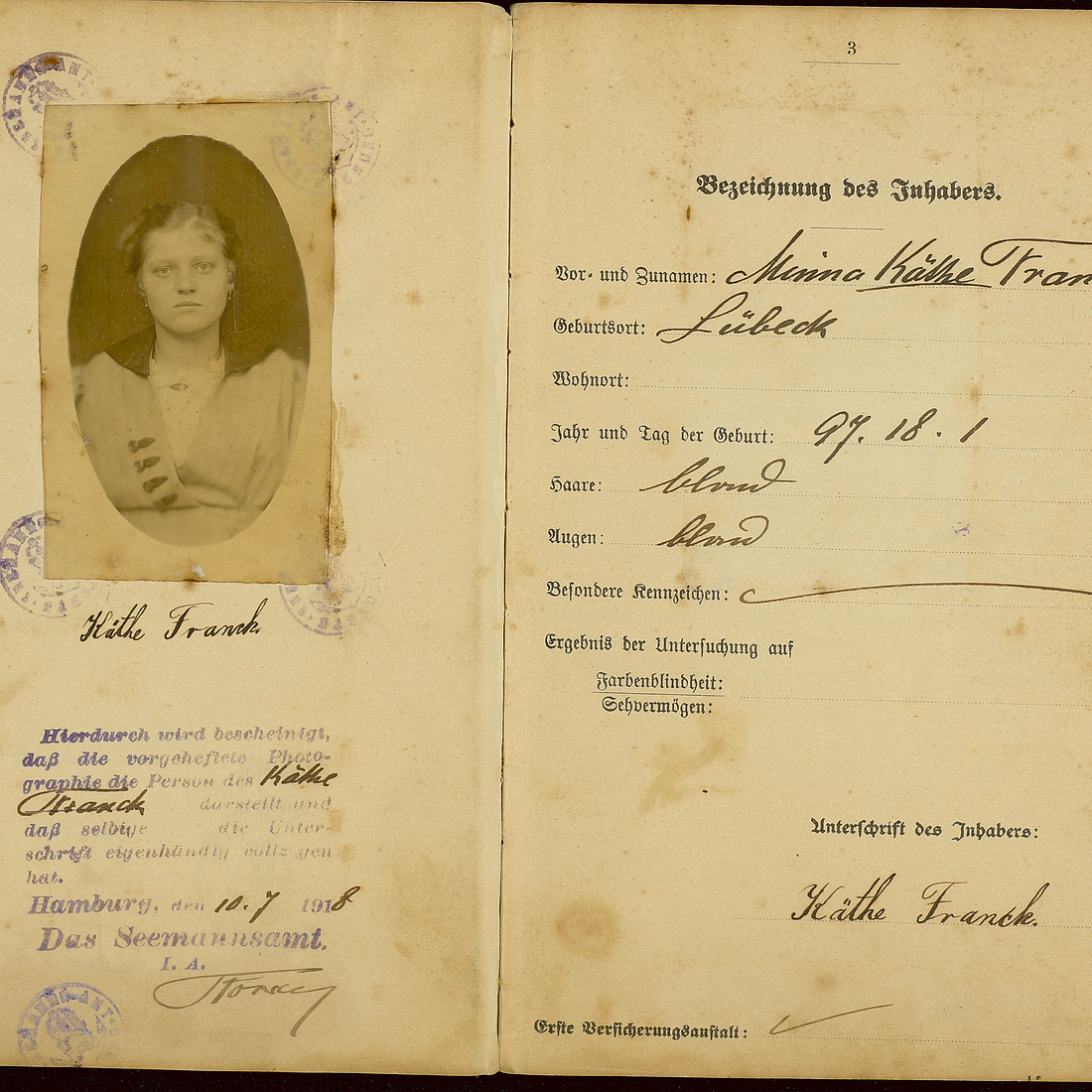Archive of the month: Seafaring book of the stoker Käthe Franck
In the "Archive of the Month" series, the German Maritime Museum (DSM) / Leibniz Institute for Maritime History presents a special treasure from the archive every month. In June, interested parties can digitally browse through the seaman's book of the stoker Käthe Franck. She was one of very few women working on board at the beginning of the 20th century.
Käthe Franck's seaman's book is a special source from the time of the First World War. It documents the work of women in areas of shipping where previously only men had worked. During World War I, women worked in many branches of public life as well as in war-related industries, including shipping. Käthe Franck, born in 1897, was one of the women who worked as stokers on board steamships, where there was a shortage of male labor. The female stokers did heavy work on ships transporting ore for the war economy and at that time were employed on steamers of the Hamburg-Amerika Linie (Hapag) or the Norddeutscher Lloyd (NDL). As Käthe Franck's seaman's book documents, she worked on the steamer BOLIVIA for three months in 1918. She received her discharge certificate in December 1918, after having worked on the steamship IMPERATOR for about one week in October 1918. Our former colleague Dr. Ursula Feldkamp evaluated this source from the archives of the DSM for the first time a few years ago as part of her research on women in shipping.
Contact
Thomas Joppig
Overview archives of the month
Archive of the Month: Treasure from the Archive
Archive of the Month in January: From New York to Bremen 1859
Archive of the month for February: Photos of the small cruiser MEDUSA
Archive of the month in April: The engine journal of the Bremen icebreaker DONAR
Archive of the Month in May: The Diary of Caroline von Aschen
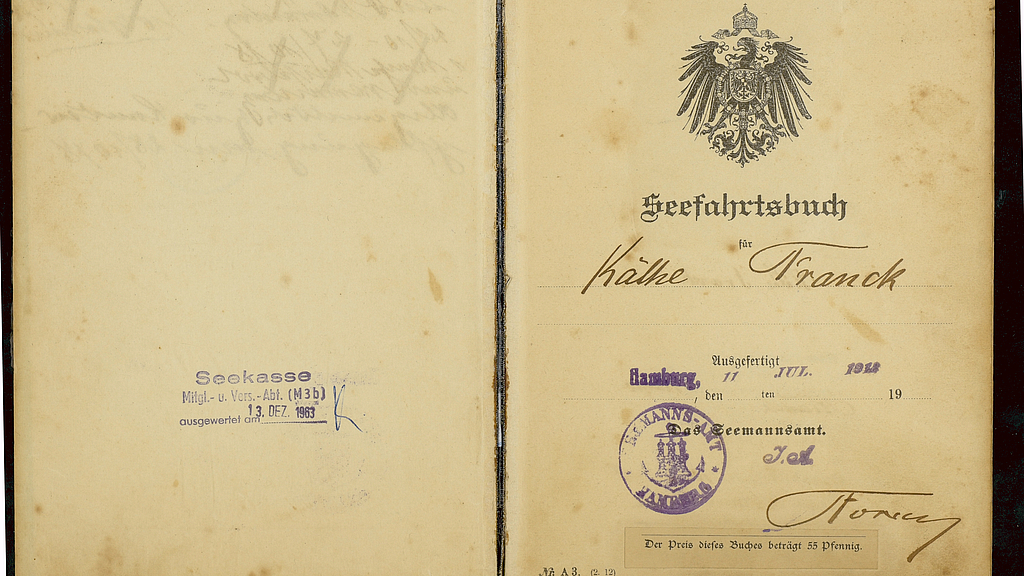
The seafaring book of the stoker Käthe Franck is a special archival piece, as it shows that there were a few women who went to sea at the beginning of the 20th century. Credit: DSM
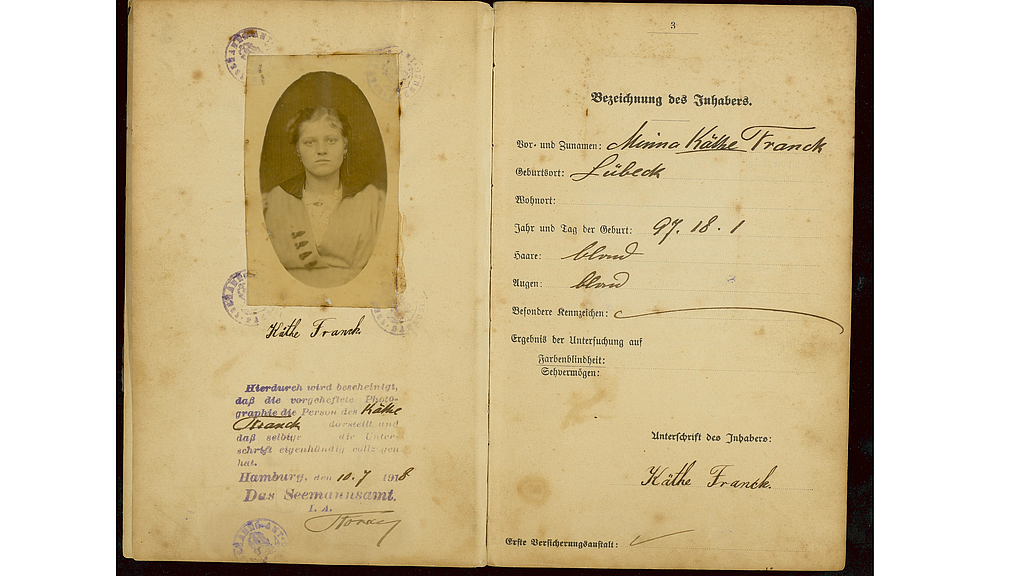
Käthe Franck was born in Lübeck in 1897. Credit: DSM
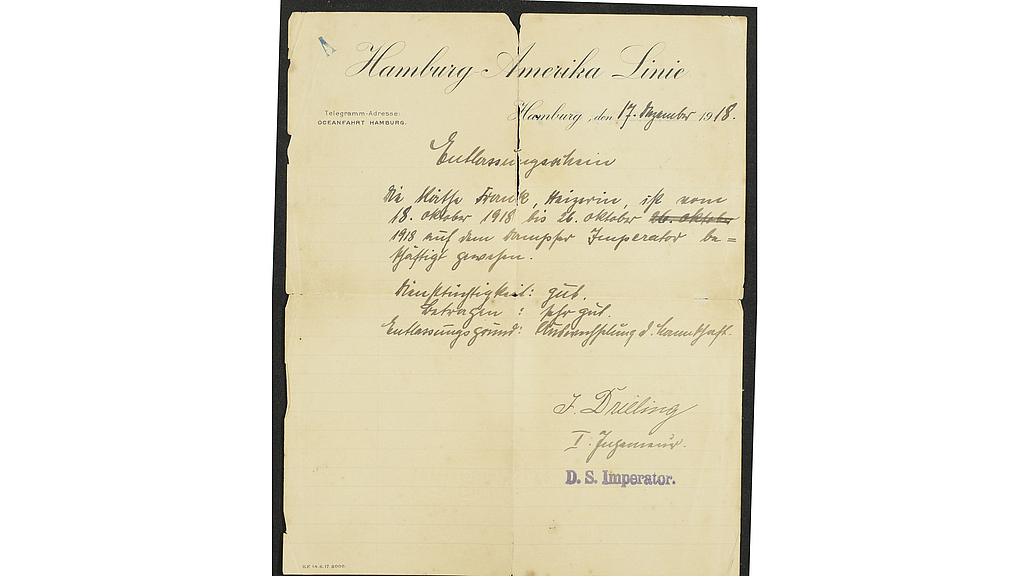
Credit: DSM
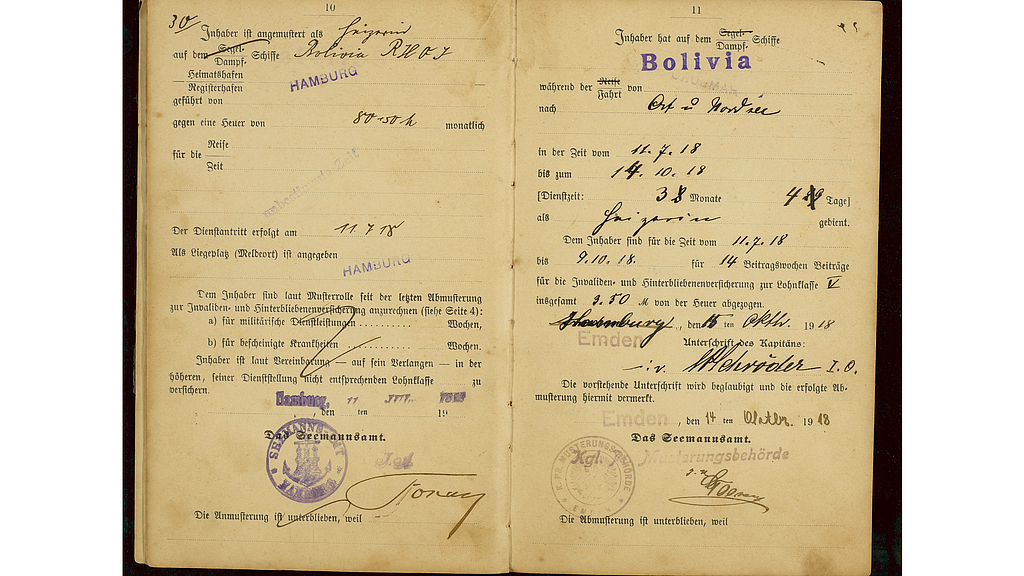
Credit: DSM

